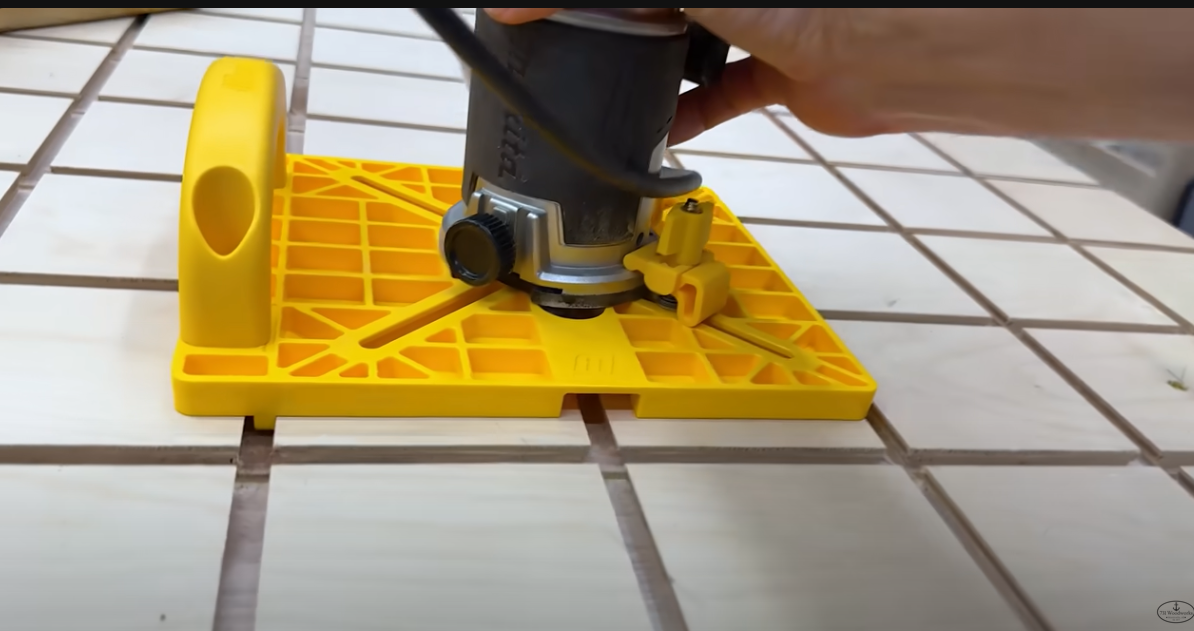Essential Woodworking Jigs Every Beginner Should Build for a Safer and Smarter Shop
If you’re just getting into woodworking, you’ve probably realized real quick that tools and accessories can get expensive. But here’s the good news—you don’t need to break the bank to level up your shop. With a little plywood, the right router bit, and some clever jig designs, you can build simple jigs that will completely change the way you work.
I know because I’ve been there. My very first attempt at a table saw sled wound up in the burn pile. I didn’t know what I didn’t know, and it was frustrating. But once I learned a few tricks—and got my hands on a MicroJig dovetail bit—it all started to click. Today, I’m going to walk you through must-have woodworking jigs that will help you work safer, get more accurate cuts, and save money along the way.
Affiliate Disclaimer: This post contains affiliate links, which means I may earn a small commission if you buy through them—at no extra cost to you. It helps keep the tool deals coming, so thanks for your support! Prices are valid at the time of posting but are subject to change at any time.
Watch The Full Youtube Video Here: Incredible NEW Woodworking Jig For Small Shops
Why Every Woodworker Needs Jigs
Woodworking jigs are basically helpers for your tools. They keep things square, steady, and safe. Whether it’s making crosscuts on a small table saw, jointing boards without a $1,000 jointer, or clamping down a stubborn workpiece—jigs make the job easier and the results better.
Plus, most of these are DIY friendly. If you can cut plywood and run a router, you can build these.
1. The Game-Changing Jointing Jig
A jointer is one of the most useful tools in the shop, but also one of the most expensive. If you don’t have one, you can make a simple jointing jig for your table saw that gives you butter-smooth, straight edges.
Here’s how:
Use a piece of ¾-inch plywood
Route dovetail grooves about ⅜ inch deep using the MicroJig Dovetail Router Bit
Clamp your board to the jig and run it across the saw
This keeps bowed or warped boards steady and gives you a perfectly straight edge every time.
👉 Want to try this? Grab the Dovetail Router Bit here.
2. A Small Table Saw Sled That Packs a Punch
If you’ve got a compact saw, you know crosscuts can be tricky. That’s where a mini table saw sled comes in.
Steps to build:
Cut a 20x20 inch piece of ¾-inch plywood
Glue up a double-thick plywood fence
Use the Matchfit Grid Router Guide to cut a perfect dovetail groove pattern
Install a Zero Play Miter Bar to keep it running smooth
Not only will this sled help you cut square, you can upgrade it with stop blocks and miter fences for even more accuracy.
3. The Ultimate Workbench Upgrade
This one blew my mind. Using the Matchfit Grid Router Guide, I added a dovetail groove grid across my entire workbench.
Here’s why it’s a game changer:
Unlimited clamping options anywhere on the surface
Perfect 90° assembly setups for tables and benches
Rock-solid workholding for sanding and routing
Works on any size bench—even portable tops like a Bora Centipede
Pair it with Ramp Clamps and Dovetail Ratchet Clamps and you’ll wonder how you ever managed without it.
4. Space-Saving Vertical Clamping Jig
If you’re tight on space, a simple dovetail clamping board can turn just about any surface—even a tailgate—into a mini workstation.
With this jig, you can clamp:
Edges of boards for sanding or routing
Ends of boards for joinery
Odd shapes using low-profile clamps
This little setup has saved me more times than I can count when I needed vertical clamping.
5. Free MicroJig Project Plans
Did you know MicroJig offers free jig plans on their website? One of my favorites is the Utility Sled. It uses the same Grr-ripper Handle you see on their push blocks, making it sturdy and comfortable.
If you’re looking for a quick win, download their free plans and knock one of these out in an afternoon.
Tools and Accessories I Recommend
Here are the exact tools and accessories I used in this build:
Stay Safe in the Shop
I can’t stress this enough—safety first. Always use push blocks like the Grr-ripper, wear eye protection, and double-check your fences and sleds before cutting. A jig isn’t just about accuracy—it’s about keeping your hands away from danger.
Final Thoughts
Woodworking doesn’t have to be complicated. With just a sheet of plywood and the right router bit, you can build jigs that will make your shop safer, smarter, and way more enjoyable. These setups transformed my workflow, and I believe they’ll do the same for you.
👉 Want more woodworking tips, tool reviews, and shop upgrades? Be sure to sign up for my daily tool deal emailsso you never miss a bargain. And if you’re ready to take your woodworking to the next level, join my Woodworking Coaching Community on Skool where over 600 woodworkers are building businesses and chasing their dreams.
Happy woodworking, y’all—and remember, safety first.







